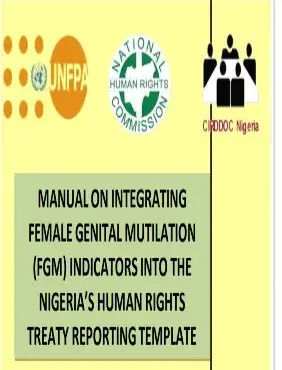Generally, violence takes different forms and may be suffered by any person. However, there are some forms of violence that are peculiar to women and girls because of their sex. In Nigeria, women suffer many forms of violence which is a major issue in all parts of the country. Acts of violence are likely to result in physical, sexual, or emotional suffering to female victims of violence. Violence occurring within the home and family sphere (domestic violence) is widespread and perpetrated mostly by male members of the family against women and children. These may be physical assaults, verbal abuse, marital rape (forced sex), incest, forced marriage, and child marriage.
Another form of gender-based violence is sexual harassment. This is common in the workplace including both formal and informal sectors, public or private spaces (on the streets, at parties, in schools). In its extreme form, it becomes sexual violence. This is manifested in unwanted touching, insertion of objects into female private parts, refusal to have protected sex, sexual intercourse that involves force, threats, blackmail, even when there is no penetration such as forced oral sex


